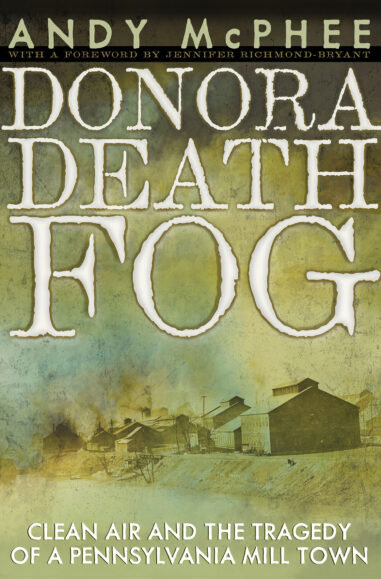Longlist, 2025 WCoNA Book of the Year
With a foreword by Jennifer Richmond-Bryant
In October 1948, a seemingly average fog descended on the tiny mill town of Donora, Pennsylvania. With a population of fewer than fifteen thousand, the town’s main industry was steel and zinc mills—mills that continually emitted pollutants into the air. The six-day smog event left twenty-one people dead and thousands sick. Even after the fog lifted, hundreds more died or were left with lingering health problems. Donora Death Fog details how six fateful days in Donora led to the nation’s first clean air act in 1955, and how such catastrophes can lead to successful policy change. Andy McPhee tells the very human story behind this ecological disaster: how wealthy industrialists built the mills to supply an ever-growing America; how the town’s residents—millworkers and their families—willfully ignored the danger of the mills’ emissions; and how the gradual closing of the mills over the years following the tragedy took its toll on the town.


